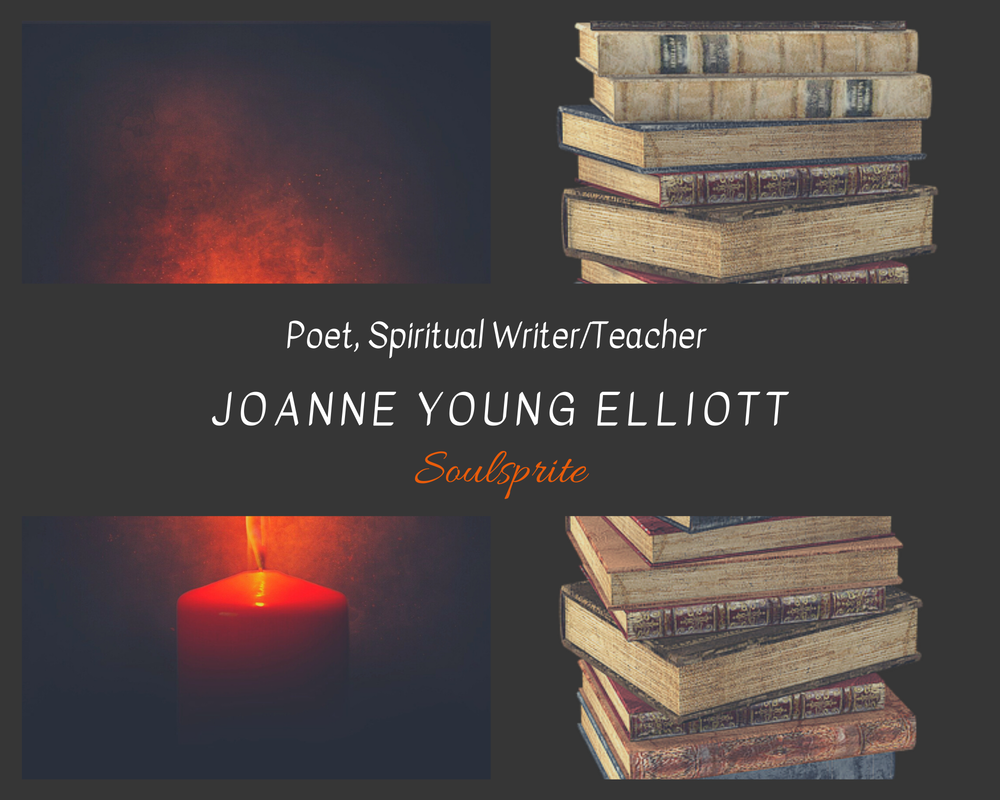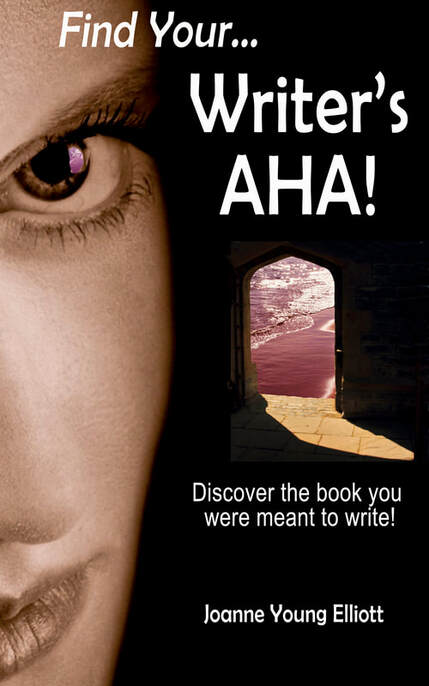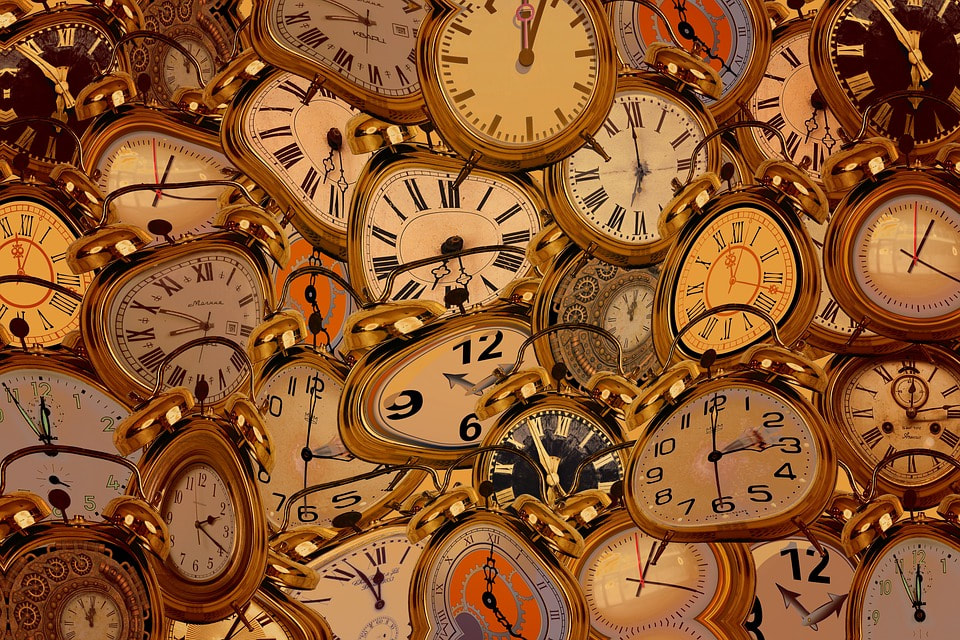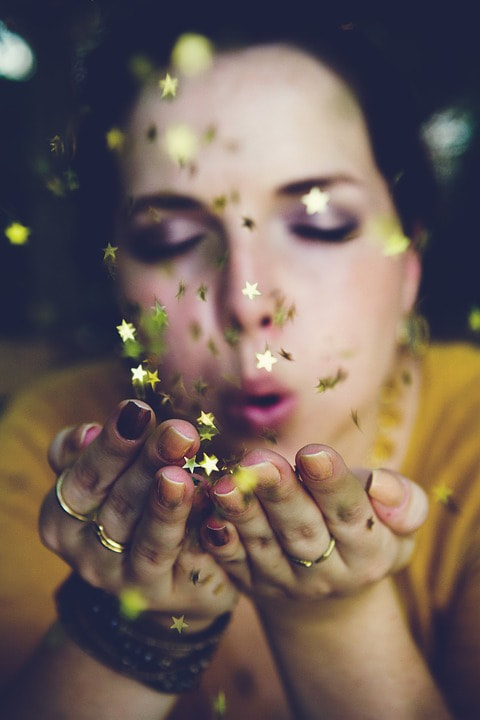|
10/28/2019 0 Comments How to Make Space in Your Head for Great Ideas Now An Excerpt from The Writer’s AHA! – Discover the Book You Were Meant to Write!There is the quick way and the not-so-quick way to go about creating space in your life and head. The not-so-quick way may not give you immediate results but will help you create a life where space is the norm. I highly recommend it.
If you want answers now and don’t feel it’s possible to implement the slowing and simplifying techniques into your life at the moment, there is another way. How to Get Your Ideas Now There are three things you can do right now to create space in your life and head: meditate; remove or cut back on one activity; and do your menial tasks in a non-thinking manner. Meditation is a part of the not-so-quick way. Doing it long term is essential to creating mental space that is available all day long, but you can benefit on your first try. Ideas will often show up as soon as you get quiet. No matter how busy you are, you can find 10 or even 5 minutes a day to meditate. Here’s a video of the technique I use. It’s called Shamatha and it works. Often people think meditation is about emptying your mind. That’s just not possible. Your mind is made to think so you’re not going to stop it, but you can learn how to focus it and to refocus it when you get caught up in your thoughts. Eventually your thoughts will just be background noise and you will be in touch with that part of yourself that notices. When you begin to identify with that part of you that notices, the witness, you will have created space within. This means you’ll become less and less likely to get caught up in drama and be able to look at life objectively. Don’t confuse this with being unfeeling. If anything, you’ll feel more emotion, which is good for a writer. Another quick way to discover your ideas is to cut back on an activity or cut out one thing all together. You do this so you can find at least 15 minutes a day for your mind to wander. Letting your mind wander is not the same as vegging out in front of the TV. The idea is to use this time to just sit and stare out a window, go sit in a park or even relax in a coffee shop. Unwind your mind. Let it wander. Your mind is not wandering if you’re thinking about the next task or ruminating over a mistake you made. Bring your focus back to the present and begin again. This is where your meditation practice will help. If you find your mind keeps worrying about getting back to work, find a time after work or extend the time so you feel more spacious. The third quick way is to do a boring task. This needs to be a task you don’t have to think about like doing the dishes or taking a shower. Traditionally Buddhist masters asked their students to chop wood and carry water. Driving can work, too, but be careful. Don’t fill you mind with how much you hate the chore or obsess on the future. Be present, be calm and your ideas will surface. Relaxation is essential for the ideas to rise from the subconscious to your conscious mind. Basically your mind is in a mode similar to when you’re staring out a window, but this way you can check an item off your to-do list. You can get The Writer’s AHA! – Discover the Book You Were Meant to Write! on Amazon. If you’d like more helpful content like this, sign up for the Pro Writer Newsletter and get the blog as well as other free resources to help you get the writing done.
0 Comments
We all have 24 hours every day in which to live our lives. It’s important to manage it the way we want rather than letting others manage it for us. I also believe it’s possible to view it in different ways to get even more from those 24 hours. Here are five ways we can view time and how to use them to gain more productivity and creativity. Linear This is the most common way time is viewed. Events happen in a sequence from past to future. When we look at time through this lens, we plan in minutes, hours, days and weeks. The writing we want to get done gets put on a calendar and we show up at a certain day and time to write. This is a very efficient way to work. It’s probably the most intuitive to those of us living in the Western world. This way of viewing time can pose a problem to creatives because we have to perform on the set day and time. The muse isn’t always cooperative on demand. The work around is to learn how to get into the right frame of for the muse anytime. It also helps if you consistently show up regularly to write. This consistency lets your muse know you mean business. Cyclical Many Indigenous cultures view time as cyclical. They feel there is no lost time because it always returns. They live with such a view because they live within nature. The sun rises and sets every day, the moon moves through its phases every month, the seasons come back again and again. When you view time this way, you relax. If the moment will come around again, then you won’t miss anything. In a culture where people suffer from FOMO (fear of missing out), viewing time as cyclical can release us from this fear. Peace is more easily achieved which is the best thing for our intuition and creativity. And when those are working we’re more productive. The only issue with viewing time as cyclical is becoming too relaxed which could lead to putting things off. There’s a chance we might become like Scarlet O’Hara in Gone with the Wind and say too often that we’ll think about that tomorrow or tomorrow is another day. Limited Time is limited in terms of our life span, the hours in a day, the days in a year, etc. Viewing time this way can cause stress. We feel we must rush to fit it all in. This isn’t helpful to creativity. But what is helpful about viewing time as limited, is that it narrows our focus. We realize we can’t do everything. It helps us get selective. This is important in order to be productive and do our best work. Infinite In a spiritual sense, time is infinite. And to view it this way expands our being. It opens us up to possibility and helps us relax and not feel rushed. To view time as infinite can sometimes lead us to feel too lax in the way viewing it as cyclical can. We need to have a sense of expansiveness and concentration in order to be creative and productive. Subjective Because we can view time in many different ways, it is subjective. We especially feel this way when we’re in the thrall of the muse, diving deep into the flow of creativity. Think of the times when you sat down to work and were so engrossed that two hours felt like 15 minutes. It’s important to let go of time in order to get into the flow. Time is a concept we humans have created. Events do happen in a sequence, but there are moments when it passes differently for me than it does for you. Those times are when we’re in flow or when we’re waiting for bad news and time feels as though it’s barley moving at all. When we’re in that deep focus of flow, we’re using time most efficiently. More is accomplished with less effort. Even though we may feel only 15 minutes have passed, we did produce two hours’ worth of work and then some. It feels as though we’ve slowed down time. By taking all the ways we can view time into consideration, we can better use it to our advantage. Walk the fine line between the opposites. Allow the tension to guide you and help you tap your creativity in new ways and use the tried and true methods to help you be productive and get the writing done. If you’d like to receive more posts like this directly to your email, sign up for the Pro Writer Newsletter. When you sign up, you’ll also receive access to free resources to help you get the writing done. There’s a quote about discipline determining your destiny and not desire. It’s true we need discipline in order to get the work done so we can succeed, but discipline that comes from love of what we do rather than force is what creates success. So, we need to begin with desire. I have self-discipline as the first Success Principle for The Write Magic, but now I’m thinking desire comes first. In my experience, leading from desire allows me to know what to do and have the drive to do it. Feelings drive our actions. But there is more. Thoughts come before our feelings. So is it our thinking that determines our destiny and not desire? Truthfully it’s not simply one of these but a process of thought, feeing and action that determines our destiny. But when I really think about it, all begins with a desire, a feeling that is there before words. It’s the language of the soul speaking to us through our heart and our sub conscious in both feelings and images. The words come later. Words are the medium we use to make our desires real beyond our inner world. Thought is a tool we humans developed, but the spell is already cast by our desires and it is through these feelings we are pulled to act in ways that will manifest them. Thought is not as prominent as we like to think. Thoughts can cause us to feel and we can use them to get the feeling we want and therefore the action we want. But when it comes to living our dreams and responding to the stars aligned in our hearts, our soul speaks first and our souls speak through desire. Over 20 years ago I discovered the power of asking the question, What do you want? The person I posed that question to had been asking everyone what they thought she should do. When I asked her what she wanted, she lit up. Her desire filled her eyes. There was no more for her to ask. She immediately began doing what it would take to make that desire a reality. We follow through more easily with what needs to be done when we live from our desire. I began to understand this better when I thought about how I create a powerful piece of writing. When I feel the emotions of the events I’m writing about, I automatically create something filled with emotion. If I were to strategize how to use the right words and structure the writing so it will illicit feelings from the reader, the piece wouldn’t be as powerful. I still have to edit what I write, but the feelings I have as I write guide me to put on the page what is needed. I’m not sure how this works. I just know it does. So let yourself feel your desire to create and write. Let the pull of the vision guide you to your next steps. When you find yourself having thoughts of not being good enough or not having time and all those other impeding thoughts, stop and get quiet. Let your desire to create speak to you, fill you up and pull you towards your destiny. Would you like more helpful content like this to come directly to your email every week? Sign up for the Pro Writer Newsletter and also receive a number of free resources to help you get the writing done. Imagery is a literary device in which words are used to describe something in the world in a way that creates an experience of it for the reader. It encompasses more than just the visual despite its name. To successfully invoke a powerful experience in the reader, a writer uses words related to all of the senses. Painting with words seems like a limited description, but paintings can elicit a full body experience.
To use imagery in your writing you must fully engage your imagination. To bring the reader into the world you are creating or writing about, you must first be present in it. Before you describe a scene, close your eyes and imagine being there. What do you see? What do you hear? Is the air warm or the wind blowing? Are their smells? Is there something to taste? Once you’re fully in the scene, meaning you feel as though you are there, start writing. Write from the experience you’re having in your imagination. In an earlier post, “The Secret to Powerful Writing” I mention the secret is to feel what you are writing about. By doing this you more easily find the words you need to describe the scene. During the editing process you can go back and make the imagery even stronger if you need to. Here are some tips for each of the senses to strengthen your imagery. Visual This is probably the easiest sense to describe. Take a memory of an experience you had or go into the world and have the experience now. Let’s say you are standing by a lake. You could say the lake was a mirror reflecting the green trees around it. Here is another way to describe it: It was crystal in sunshine and steel on cloudy days. You could simply say: The lake was an ever changing blue. The words mirror, crystal, steel, ever changing blue help you see the lake. Sounds We are mainly visual beings, but sound plays a large role in our experience. We use phrases like: kids shouting in the distance, the annoying bark of the little dog or the jet roared overhead. Shouting, bark, roar are words denoting sounds. There is another way to write about sound and that is to create a word that imitates a sound. This is called onomatopoeia. Grrrrrr is used to show a growl. Rat a tat tat is the sound of a drum. Humph for a person who is annoyed. Achoo is a sneeze. Physical Feelings/Touch Our skin tells us a lot about our environment and the things in it. Let’s say you’re writing about trying on a wedding dress. You could describe how the satin feels soft and smooth against the bride-to-be’s arms or how the waist line cut into her skin. The air we breathe is also the air that touches our skin. Is it warm or cold? If cold, it might raise the hairs on one’s arms in goosebumps. If hot, the sweat may tickle as it runs down one’s face. Maybe the sweat carries sunscreen and when the sweat drips into the eyes of your character it burns. Taste Our taste buds detect five different tastes. Salty, sweet, sour, bitter and umami. Use these to describe the food your characters taste. You can also use comparison. For example: Her mother’s pea soup tasted like the sludge off a slimy river barge. This is much more interesting that just saying it tasted bad. Smell Smell is the most difficult sense to describe directly. Things smell good or bad. We may say sweet or stinky, but words like these are often synonyms of good or bad. We also use words like acrid or musky, but they are comparing the smell to something else and give a sense of the overall quality. Comparison is often the best way to bring smell into your description. For example: The garbage stank like it had been sitting in the sun for a month. And this: The inside of her wrist smelled of roses and something more animal. We don’t have to describe every single detail. It’s important to pick and choose those things that help you tell your story best. Give enough to create an atmosphere or elicit a deep feeling. Mention the things that tell you more about your characters or foreshadow something to come. Powerful writing creates an experience for the reader and helps them enter your story or poem in order to join with you or the characters. As the reader vicariously lives through you or your characters, they will discover new experiences and want more of your words. Would you like more helpful content like this to come directly to your email every week? Sign up for the Pro Writer Newsletter and also receive a number of free resources to help you get the writing done. |
Archives
December 2019
Categories |





 RSS Feed
RSS Feed
